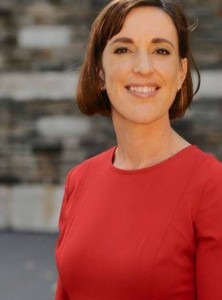
Baltimore City mayoral candidate Elizabeth Embry
Baltimore City mayoral candidate Elizabeth Embry believes that her experience prosecuting some of the city’s most violent and horrific crimes gives her the edge needed to move the city forward.
“It’s…having someone who has thought about the problems of the city and looked at how to do things differently. Not just tinker around the edges,” Embry said in an interview with the AFRO. “Really change the way we police. Really addressing the problem that especially young Black men in parts of the city have no other options than selling drugs,” she said.
“What does that really mean? Sure, we know it, but what does that mean that the city is spending money, the city is investing in job training and bringing businesses to neighborhoods, making sure that there’s transportation from Sandtown and Cherry Hill to the job centers. Being focused on the disparities of the city and how to address them across policy areas and having that be front and center in everything that the city does.”
Embry said that she would be rolling out detailed plans about what she would do as mayor in the coming weeks.
Embry was a Deputy State’s Attorney under former City State’s Attorney Gregg L. Bernstein. She also worked for the Mayor’s Office of Criminal Justice and at the Maryland Department of Labor, Licensing and Regulation. She currently serves as Chief of the Criminal Division for the Attorney General – a job she is on leave from as she runs for mayor.
She said that her experiences gave her the chance to see what happens when the system fails.
“I’ve seen what can work, but what I’ve also seen in the criminal justice system is what happens when every system does not work. To me, the criminal justice system is what you see when everything fails. And as a prosecutor — I did overwhelmingly violent crimes, victim crimes — and so you’re dealing every day with victims and witnesses who are telling you these unbelievable stories of pain.”
She also thinks that her past work gives her the management experience needed to run the city effectively. She said that under Bernstein, she helped run an office of over 400 employees.
“We pretty significantly restructured around community prosecution, created a major investigation unit,” she said. She said they also created a conviction integrity unit that specialized in taking a second look at claims of innocence.
“I think management is management. There’s nothing more complicated than being mayor, but I do think being a good manager is important and that means finding the best possible people from city government, from outside, from business, from nonprofits – finding the greatest people in the city and putting them in positions of leadership. Not just at the top levels but moving down. I’ve worked in government so I know there’s tremendous people already there, you just have to celebrate them,” she said.
Like many of the men and women running for mayor, Embry said that it is time for a change.
“We have some real big problems in the city. We have the highest rate of violence in the city’s history. We have a school system that despite some really hard-fought gains is really stumbling right now administratively to maintain those gains and to further grow and to replicate some of the best practices that are going on in schools. And our housing problem, despite some really good efforts by the city is going in the wrong direction,” she said.
“So we have these big problems and we’re losing a little bit of ground instead of moving forward and we have to be moving forward quickly and aggressively.”
If Embry’s name sounds familiar, it’s because her father, Robert C. Embry, is a former Baltimore City Housing Commissioner and also former chairman of the Baltimore City School Board. Her mother, Mary Ann Mears, is a local artist and works to promote arts education. Embry said that her roots mean she’s even more tied to the city of Baltimore.
“I love this city. I’ve spent my life here. I was born and raised in Baltimore. And I’ve spent my career in public service and city government and state government,” she said.
“There’s so many things that are right and positive in the city – institutions, community leaders, schools – so many things that are going right. But city hall is sort of a vacuum in the center of a lot of great things that are going on. They really need leadership in city hall that’s telling the good stories, bringing people together around the problem, the common solution. We need that center there.”


